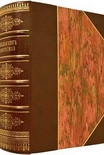Myths and Legends of China by E. Werner (free ebook reader for iphone TXT) 📗

- Author: E. Werner
Book online «Myths and Legends of China by E. Werner (free ebook reader for iphone TXT) 📗». Author E. Werner
Chang Tao-ling’s Great Power
The name of Chang Tao-ling, the Heavenly Teacher, is a household word in China. He is on earth the Vicegerent of the Pearly Emperor in Heaven, and the Commander-in-Chief of the hosts of Taoism. He, the chief of the wizards, the ‘true [i.e. ideal] man,’ as he is called, Page 142wields an immense spiritual power throughout the land. The present pope boasts of an unbroken line for three-score generations. His family obtained possession of the Dragon-tiger Mountain in Kiangsi about A.D. 1000. “This personage,” says a pre-Republican writer, “assumes a state which mimics the imperial. He confers buttons like an emperor. Priests come to him from various cities and temples to receive promotion, whom he invests with titles and presents with seals of office.”
Kings of Heaven
The Four Kings of Heaven, Ssŭ Ta T’ien-wang, reside on Mount Sumêru (Hsü-mi Shan), the centre of the universe. It is 3,360,000 li—that is, about a million miles—high.9 Its eastern slope is of gold, its western of silver, its south-eastern of crystal, and its north-eastern of agate. The Four Kings appear to be the Taoist reflection of the four Chin-kang of Buddhism already noticed. Their names are Li, Ma, Chao, and Wên. They are represented as holding a pagoda, sword, two swords, and spiked club respectively. Their worship appears to be due to their auspicious appearance and aid on various critical occasions in the dynastic history of the T’ang and Sung Periods.
T’ai I
Temples are found in various parts dedicated to T’ai I, the Great One, or Great Unity. When Emperor Wu Ti (140–86 B.C.) of the Han dynasty was in search of the secret of immortality, and various suggestions had proved unsatisfactory, a Taoist priest, Miao Chi, told the Emperor that his want of success was due to his omission to sacrifice Page 143to T’ai I, the first of the celestial spirits, quoting the classical precedent of antiquity found in the Book of History. The Emperor, believing his word, ordered the Grand Master of Sacrifices to re-establish this worship at the capital. He followed carefully the prescriptions of Miao Chi. This enraged the literati, who resolved to ruin him. One day, when the Emperor was about to drink one of his potions, one of the chief courtiers seized the cup and drank the contents himself. The Emperor was about to have him slain, when he said: “Your Majesty’s order is unnecessary; if the potion confers immortality, I cannot be killed; if, on the other hand, it does not, your Majesty should recompense me for disproving the pretensions of the Taoist priest.” The Emperor, however, was not convinced.
One account represents T’ai I as having lived in the time of Shên Nung, the Divine Husbandman, who visited him to consult with him on the subjects of diseases and fortune. He was Hsien Yüan’s medical preceptor. His medical knowledge was handed down to future generations. He was one of those who, with the Immortals, was invited to the great Peach Assembly of the Western Royal Mother.
As the spirit of the star T’ai I he resides in the Eastern Palace, listening for the cries of sufferers in order to save them. For this purpose he assumes numberless forms in various regions. With a boat of lotus-flowers of nine colours he ferries men over to the shore of salvation. Holding in his hand a willow-branch, he scatters from it the dew of the doctrine.
T’ai I is variously represented as the Ruler of the Five Celestial Sovereigns, Cosmic Matter before it congealed into concrete shapes, the Triune Spirit of Heaven, earth, Page 144and T’ai I as three separate entities, an unknown Spirit, the Spirit of the Pole Star, etc., but practically the Taoists confine their T’ai I to T’ai-i Chên-jên, in which Perfect Man they personify the abstract philosophical notions.10
Goddess of the North Star
Tou Mu, the Bushel Mother, or Goddess of the North Star, worshipped by both Buddhists and Taoists, is the Indian Maritchi, and was made a stellar divinity by the Taoists. She is said to have been the mother of the nine Jên Huang or Human Sovereigns of fabulous antiquity, who succeeded the lines of Celestial and Terrestrial Sovereigns. She occupies in the Taoist religion the same relative position as Kuan Yin, who may be said to be the heart of Buddhism. Having attained to a profound knowledge of celestial mysteries, she shone with heavenly light, could cross the seas, and pass from the sun to the moon. She also had a kind heart for the sufferings of humanity. The King of Chou Yü, in the north, married her on hearing of her many virtues. They had nine sons. Yüan-shih T’ien-tsun came to earth to invite her, her husband, and nine sons to enjoy the delights of Heaven. He placed her in the palace Tou Shu, the





Comments (0)